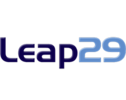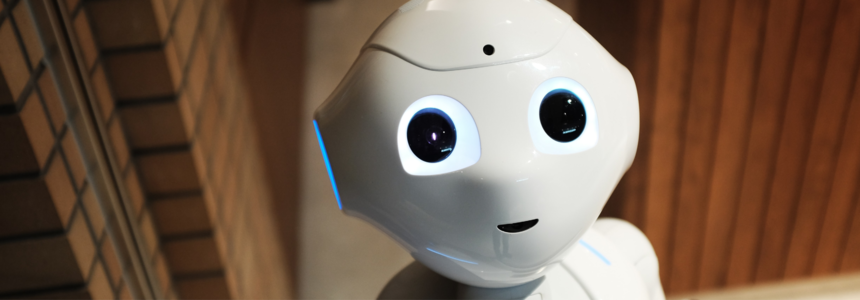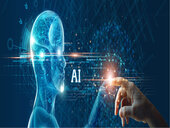AI is rapidly developing and has become a big part of everyday life for all of us. Whether it is through our smartphones, social media feeds, google searches or even our music choices.
In this article I am going to explore new AI technology which has the potential to transform the hiring process for recruiters and hiring managers. I will also be looking at the challenges AI is currently facing and how it could develop in the future to help improve the recruitment process.
Upcoming AI Recruitment
A few industry professionals have recently set out to design an AI-based system for recruiting, which eliminated the need for a human recruiter. Unlike previous technology, the search they have built is based on data that goes beyond the traditional minimum length of the CV and the past 5 years of the candidate's work history.
The idea is to replicate the job adverts on the right side of a newspaper by entering keywords and then providing an automated reply as to how they can help them.
The interesting part is that this system is not based on a proprietary model which is built from data standardized candidate profiles, which is offered to them. Instead, the system starts work as soon as it receives an inbound query on social media. This, according to the feedback, is to offer a quick response to the queries from applicants.
Challenges with AI recruitment
There is no limit to the number of queries they can address in a single day but the challenges the developers are trying to tackle are:
- How do you build a system that is not confined to one company?
- Has tremendous flexibility to change its filters.
- Address the requirements of a person applying for a job and their unique pattern of queries?
- While we cannot understand the exact nature of this task, the challenge is that of transforming a complicated but formulaic application into a system that is highly optimized for humans.
The greater challenge is that this may not scale beyond 10,000 candidates, as the algorithm must cope with a few complicated queries a person may have, but simultaneously be ready to handle a greater number of queries from only a few different people, who have different queries.
The Human Element in AI Recruitment
This is where, the human mind comes in, in their attempt to manage the sheer number of responses a person may have, the systems will be trained on top of their employees' existing knowledge to make it seem intuitive to them.
Artificial intelligence can't make the ultimate call on who gets to interview and hire, for your company. This is, after all, is the part of the recruitment process that relies on intuition and judgment. Imagine the processing power and thought process required for an AI system to be able to read a CV and then intelligently evaluate the quality of a person's interview skills. Or to ask questions about a candidate’s personality, motivation, and technical knowledge.
How the AI Recruitment System Works
Can this be an accurate, non-biased selection process? It is something that is desperately needed and starting small, such as artificial previous experience, and predicts their future performance? This is exactly what we need to tackle with the increased demand for AI-driven recruitment.
The platform, which is on trial recently, is designed for the recruiter who has a broad breadth of experience with a variety of recruitment tools and products. The interface is split into two parts. The first half is a chatbot that helps connect with applicants who have taken the time to fill out a questionnaire and share details about their work and experience. The chatbot asks the applicant to articulate his or her skills and expertise in a few minutes. This helps connect the recruiter with the talent pool and generates a list of leads for the recruiter consultant to follow up with.
The second half is a multi-page question-and-answer application. The tool asks the recruiter a broad range of questions, which the candidate answers with varying degrees of depth depending on how many previous references they can give.
The platform uses a unique filtering system that aims to match talent with the right employer and vice versa. According to its developers, it is intended to address a variety of issues faced by recruitment teams, including accuracy in interview responses, adapting to changing job requirements and avoiding bias in the candidate pool. This is a useful tool for any recruiter, not just in the UK/EU.
Conclusion
It is hoped that the tool can help solve some of the challenge’s recruiters are facing when trying to create a candidate pool, while also taking away the tedious task of posting and replying to job applications. The gap between information and decision making is getting worse and worse. Everyone needs to take control over their career and be able to make decisions rather than being victims of a system that might not work for them or their skill set.
Millennials, really do not like the application process, as it feels like a chore to them. I think that artificial intelligence can disrupt the entire hiring process and provide an engaging and personalised experience. It will enable us to reduce the whole recruiting process and create a platform where talent and recruiters engage with each other directly, which potentially makes the whole process fluid and interactive and engaging.
I feel over the years, AI tools will improve, and algorithms will support recruiters in finding the top talent, but the main issue is, AI will struggle to gain the job hunters intentions and their personality which is very important along with their skill set.
To discuss this topic further or to find out how we can support you with your hiring requirements in the Technology industry, please contact me on: Roshi Asghar [email protected] thank you.






